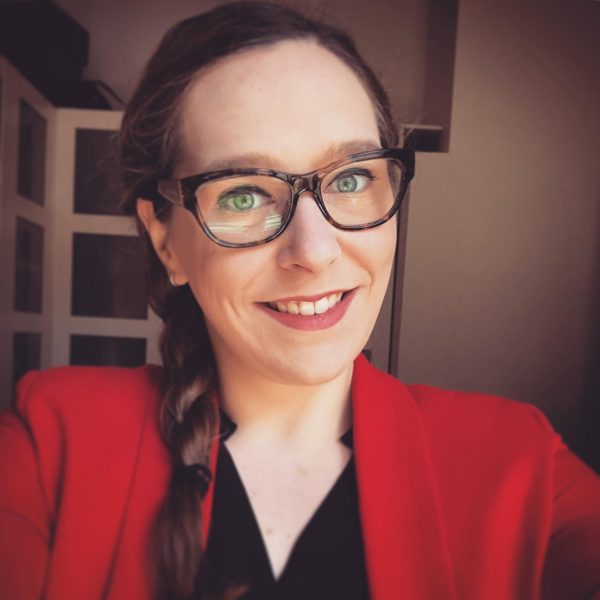Andréanne Sharp
Regular member
Institutions: Laval University, Audiology Program, School of Rehabilitation
Research interests: Deafness, Music, Brain Plasticity, Musical training, Multisensory Perception
Website
Andréanne Sharp is an assistant professor at Laval University in the rehabilitation department of the faculty of medicine and also, a certified clinical audiologist. Passionate about research and filled with a deep desire to improve quality of life of people with hearing loss, she obtained her Ph.D. in the Auditory Neuroscience Research Laboratory of Professor François Champoux at the University of Montreal. She then pursued postdoctoral studies in the laboratory of Dr. Robert Zatorre at McGill University. It is her musical background that gave her the innovative idea of developing research projects linking audiology and music. In her clinical practice in audiology throughout Quebec, she has met many patients complaining of difficulty perceiving music with their hearing aids. She therefore saw the need to develop new rehabilitation tools for this population. According to her, the solution to this problem began with exploration of other senses. This is why she started to develop vibrotactile technological tools allowing her to study musical perception in individuals with profound deafness.
Within her laboratory, Andréanne Sharp hopes to continue the development of knowledge in the field of adult rehabilitation by studying the limitations caused by deafness in terms of communication and recreation. To do this, the first part of his research program consists in studying the fundamental mechanisms of auditory scene analysis and music perception in normal individuals as well as those who have followed musical training. This new fundamental knowledge is necessary to develop new rehabilitation tools that can be used by clinicians. The second part of her research program aims to study the impact of deafness on auditory skills related to music perception in order to propose rehabilitation tools. She would like to investigate how to more adequately adjust existing compensatory tools for individuals with deafness (hearing aid or cochlear implant) and work on the development of new technological rehabilitation tools (for example, vibrotactile aids) in order to allow people with hearing loss to make a better analysis of the auditory scene. The professor also wishes to measure the effect of auditory training (for example, musical training) on central auditory skills in order to develop tools that can be used in rehabilitation.

